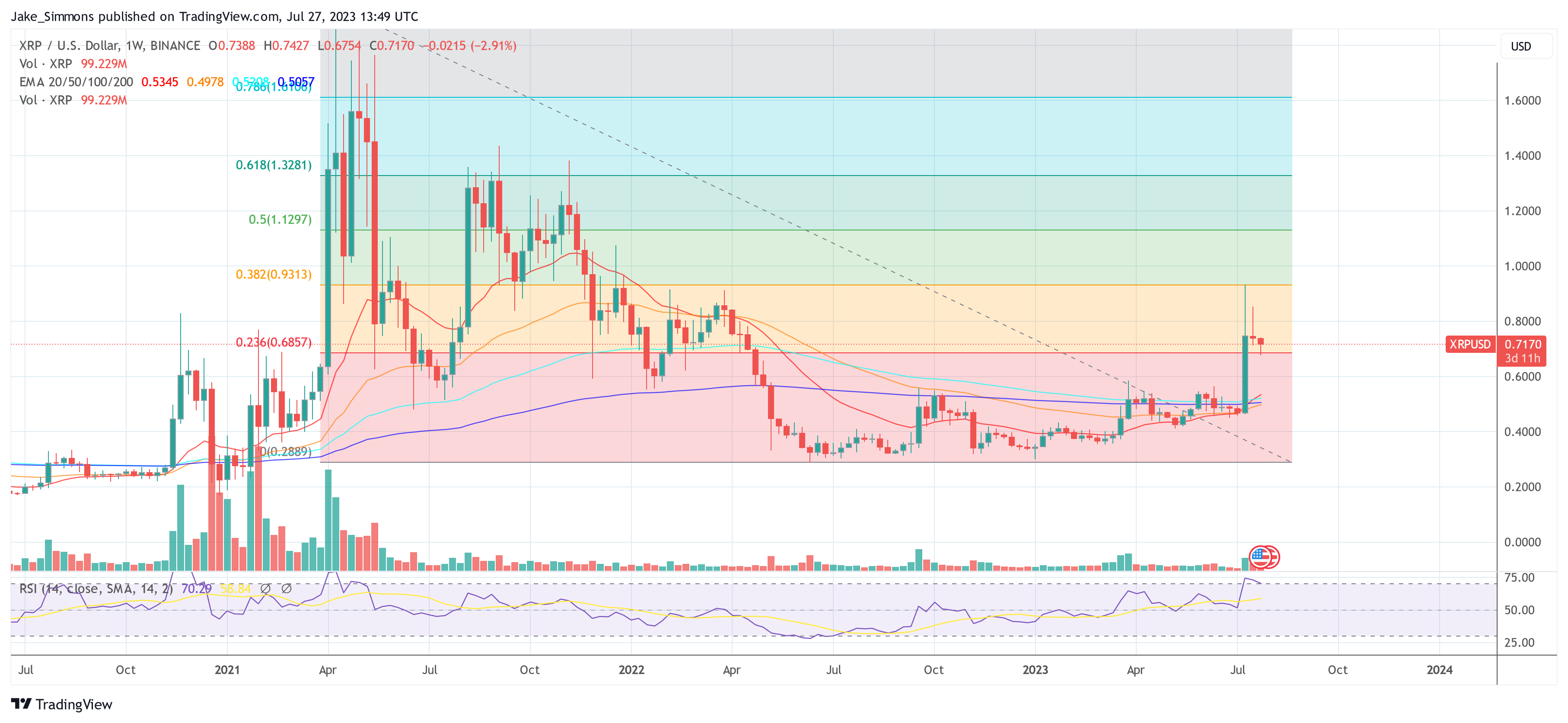Brian Korn, a partner at Manatt, Phelps & Phillips LLP, a Los Angeles-based law firm of more than 450 attorneys, has introduced a thought-provoking argument regarding the legal battle between SEC v. Ripple that could have far-reaching consequences for the broader crypto industry’s secondary market.
The ruling, which was rendered on July 13, carried some intriguing implications for the entire crypto market. While Judge Torres explicitly said in a footnote that she is not addressing whether all secondary trading in XRP is covered by federal securities law because that question was not presented in the SEC’s case, she classified institutional XRP sales as investment contracts and excluded programmatic sales from this category.
Broader Implications From The Ripple Ruling
This distinction prompted Korn to raise questions about the broader implications for secondary sales of securities in the cryptocurrency realm. According to Korn’s analysis, the court’s differentiation between institutional and programmatic sales sets a precedent that may have broader implications for the crypto market.
The pivotal statement from the court highlighted that speculative investors must have “a reasonable expectation of profits to be derived from the entrepreneurial efforts of others” for a sale to be classified as a securities offering. Korn, commenting on the court’s decision, stated:
This is a curious decision in our view since it bifurcates whether an offering is a securities offering by whether the investor had actual intent to profit from the enterprise behind XRP or just that it’s a token that might trade higher.
The implications of this decision, as Korn points out, go beyond the Ripple case. It raises essential questions about the fundamental nature of investments in the crypto space and how investor intent is assessed in various sales. He emphasized that “it begs the question how any issuer is supposed to discern investor intent in any sale of a security, and that two identical sales could each have a different status based on the intent and awareness of the purchaser.”
On one hand, a thoughtful non-accredited investor could purchase XRP expecting profits from the Ripple common enterprise; conversely, an institutional investor may not have known what XRP was or why it would trade up or down.
Korn further expounded on the potential complexities arising from this ruling. He remarked, “If one were to expand this ruling more broadly, it calls into question whether secondary stock trading involves securities. Stocks, of course, go up and down, and even experts disagree frequently on the trajectory of a particular listing.”
Ultimately, the ruling raises the question if “fundamental investors are purchasing and selling securities and technical strategists and index buyers are not?”
Ram Ahluwalia, CEO of Lumida Wealth, commented that both sides in the SEC v. Ripple case are likely to appeal the court’s decision. The bigger point here is the Judiciary is parsing ever finer tea leaves on securities laws not designed to deal with decentralized tech. But, ultimately, Ripple remains the winner, netting in a victory for decentralized protocols.
At press time, the XRP price was at $0.717, further consolidating after the massive rally following the summary judgment.

Source: https://bitcoinist.com/manatt-korn-novel-point-in-ripple-case/
